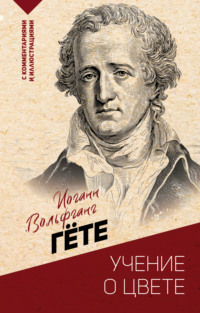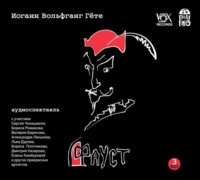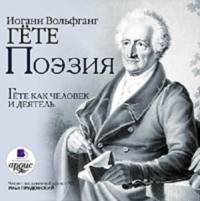 полная версия
полная версияMaxims and Reflections
To Goethe these sayings were merely reflections or opinions; it is his literary executors and his editors who called them by more ambitious titles, so as to challenge a comparison with certain other famous books of wise thought. They are the reflections of a long life rich in all the intellectual treasures of the world, in its versatility amazing, in its insight well-nigh fathomless; a life that, in his own words, approached the infinite by following the finite on every side. Such a man need only speak to utter something important; and we on our part need only remember how wide was the range of his knowledge, how full and complete his existence, to set the utmost value on his reflections at the end of it. But that he knew nothing of the pinch of poverty and was spared the horrors of disease, that he suffered no great misfortune, and basked in the bright side of the world, free from the ills that come to most men, there was no page of the book of life that was not thrown open to him. The things of the mind, the things of art, the things of nature – in their theory and in their practice he had worked at them all; regarding them as so many varied manifestations of an eternal Idea in itself inscrutable and here unattainable. There was no kind of literature with which he was unfamiliar, whether it was ancient or modern, of the East or of the West; and the great spiritual influences of the world, Hebraism, Hellenism, Christianity, Mediævalism, – at one or another time in his life he was in touch with them all, and found his account in them all. In matters of learning he was occupied with nothing but what was actual and concrete; it was only to abstract studies, to logic, metaphysics, mathematics, that he was indifferent; in his own phrase, he never thought about thinking. There was hardly any branch of the natural science of his day that he did not cultivate, that he did not himself practise; geology, mineralogy, botany, zoology, anatomy, meteorology, optics; and he made some remarkable discoveries and the strangest prophecies. To Art he gave a life-long devotion. While still a youth, he wrote an important essay on Gothic architecture; he engraved, drew, painted, and for a time took up sculpture. In all the higher forms of Art, with the single exception of music, he had so much practical interest that he often doubted whether in following Literature he had not mistaken, or at least unduly narrowed, the sphere of his activity. He was little abroad, but no one ever profited more by his travels than Goethe. Twice he went to Italy, and what a change of mind was produced by that change of sky! Rome was to him a new birth, a new conception of life. And besides Literature, Science, and Art, he busied himself with Administration, with the duties of the Court, with the practical details of the Theatre; but out of them all he learned something himself and taught something to others. He lived the fullest life granted to man. He had a youth of the wildest enthusiasm and romance; a prime of a classic austerity, of a calm earnestness; a majestic age of the ripest wisdom, when there came to him, as it were a second youth, with something of the fire of the old romantic feeling lighted up in him anew. And out of all these prodigious efforts in so many directions, he passed unharmed, and never lost himself. He steadily pursued his own task and refused to be drawn aside. He stood aloof from the controversies of his time. The battles of belief, philosophical systems, French Revolutions, Wars of Liberation, struggles of democracy and nationality, – these things moved him little or not at all. But he is not on that account to be held, as some foolish critics have held him, indifferent, selfish, or less serious, or less complete a man than his fellows. He did the best in any one's power: he resolutely kept to his own business, and, neither heating nor resting, worked at his own high aims, in the struggle not merely to learn and to know, but to act and to do. He felt profoundly that the best anyone can achieve for himself is often the best he can achieve for others. The whole moral of Wilhelm Meister is that a man's first and greatest duty, whether to others or to himself, is to see that his business in life is a worthy one and suited to his capacities. If he discovers his vocation and pursues it steadily, he will make his outer life of the greatest use and service to the world, and at the same time produce the utmost harmony within. That was what Goethe tried to do in his own person, and he laboured at his self-imposed task with a perseverance, a real unselfishness, and a determination entirely admirable.
It is almost the last fruit of this life of concentrated activity, the final outcome of this indomitable character, that is here put before us. And we shall find that to the complex phenomena of the world Goethe applied no other measure but reason and the nature and needs of man. With a full consciousness of the mysteries that surround our existence, he never made the futile endeavour to pass beyond the bounds of present knowledge and experience, or to resolve contradictions by manipulating the facts. In these detached reflections he does, indeed, propound a theory and sketch out a system of conduct; but they cannot, like the Thoughts of Pascal, for instance, be brought under a single and definite point of view. They are a mirror of life itself, and the inner and outer facts of life in all their diversity. The unity they possess is the unity that is stamped upon them by the all-embracing personality of their author, always and unweariedly striving to make his life systematic, distinct, and fruitful; and to judge them as a whole, a man must be able to fathom so great a genius. But to every one in every walk of life Goethe has a word of wise counsel, as though he understood every form of existence and could enter into its needs. In a fine passage in the Wanderjahre, he likens the thought that thus in wondrous fashion takes a thousand particular shapes, to a mass of quicksilver, which, as it falls, separates into innumerable globules, spreading out on all sides. And while these sayings may present thoughts in seeming contradiction one with another, as the moment that called them forth presented this or that side of experience, their inmost nature is a common tendency to realise a great ideal of life. It is little they owe to the form in which they are cast; they are not the elements of an artistic whole which must be seized before we can understand the full meaning of its parts. They are a miscellaneous record of the shrewdest observation; and to read them as they should be read, a few at a time, is like the opportunity of repeated converse with a man of extraordinary gifts, great insight, and the widest culture, who touches profoundly and suggestively now on this, now on that aspect of life and the world and the progress of knowledge. It is the fruit of his own experience that Goethe gives us; and we shall do well to think of it as he himself thought of another book, and to bear in mind that "every word which we take in a general sense and apply to ourselves, had, under certain circumstances of time and place, a peculiar, special and directly individual references."
Goethe is no exception to the rest of mankind in not being equally wise at all times, and in the maxims there are degrees of value: they do not all shine with the like brilliance. Some of them are valuable only for what they suggest; of some, again, it is easy to see that, they appear as matters of speculation rather than as certainties. They raise difficulties, ask for criticism, if possible, correction; or, it may be, they call attention to the contrary view and invite a harmony of opposites. Some of them make a great demand upon our ability "to understand a proverb and the interpretation; the words of the wise and their dark sayings." Their value sometimes depends on the way they are viewed, the culture brought to their understanding, the temper in which they are approached. We look at them, and at first admire; we change our point of view, and find something to criticise and dispute. The obscurity of maxims, as Goethe reminds us, is only relative; not everything can be explained to the reader which was present to the mind of the writer. Some of them seem at first to be of little interest; on one side they may even repel, but from another they attract again, and win perhaps a partial approval. They seem to move as we change our position, and to be without fixed or certain character. But some, again, are so clear and unmistakable, so immeasurably above criticism or objection, that like the furthest of the stars they have no parallax: whatever position we take, their light is steadfast.
Let no one suppose that in the main Goethe's reflections on life had never been made before; that it was not so, no one knew better than he. As a preface and note of warning to them all, he reiterates the words of the preacher: "there is no new thing under the sun." Yes! says Goethe, there is nothing worth thinking but it has been thought before; we must only try to think it again. "It is only when we are faithful," he says elsewhere,2 "in arresting and noting our present thoughts, that we have any joy in tradition; since we find the best thoughts already uttered, the finest feelings already expressed. This it is that gives us the perception of that harmonious agreement to which man is called, and to which he must conform, often against his will as he is much too fond of fancying that the world begins afresh with himself." What Goethe means is that we shall do best to find out the truth of all things for ourselves, for on one side truth is individual; and that we shall be happy if our individual truth is also universal, or accords with the wisest thought of the past. It is in this practical light that we must view the maxims, and not as mere academic generalities. It is easy to read them in an hour and forget them as soon; easy to view them with a tepid interest as the work of a great author; but no one will fully understand the value of any of them, who has not experience enough to know its truth. Well is it for us if with the experience we also gain the truth! If any one should say that some of these maxims are very obvious, and so simply true as almost to be platitudes, I would bid him remember that the best education is often to discover these very simple truths for oneself, and learn to see how much there is in commonplaces. For those who have grown old in the world are never weary of telling us that the further we go, the more we shall find, in general, that the same things will happen to us as have happened to others; and it will then be our advantage if we have the same reflections, best of all if we come of ourselves to the same conclusions, as the wisest of those who have gone before us; next best, if we can really and intelligently follow in the footsteps of their thought.
But although the matter of Goethe's sayings is not original in the sense of being new to the world – while it was original for him, since he discovered it for himself and on his own path, their manner is something new, and their range is unparalleled. Take any other set of maxims you will, nowhere is there so wide an outlook, nowhere so just an estimate of human difficulties, nowhere an aim at once so lofty and so practicable. Nowhere is there a larger, stronger, healthier, more tolerant view of life and the world, or an atmosphere clearer of the mists that too often obscure and distort our vision. And in their expression, nowhere is there so little of the besetting sin to sacrifice truth to effect. Goethe has none of the shallow malice and uncharitable candour that with writers of an earlier age passed for the practical wisdom of every day; and we need only contrast his maxims with the similar work of La Rochefoucauld, Helvetius, and Chamfort, admirable as they may be in their exposure of human selfishness, to determine on which side is the greater service to mankind. How different the views of the world taken by how many writers! – the secret of it all is that the men themselves are different.
It was said of Goethe that his heart, which few knew, was as great as his intellect, which all knew. Certainly his writings and not least his maxims are a profound example of the truth that in the last resort it is moral rather than intellectual qualities that make great literature. It is not to be denied that much may be done by a mere facility of style, a command of words, a fine taste, a wide acquaintance with the turns and resources of language; but in the end the effect is produced by the man himself, his character and his strength. To the strenuous, earnest man, like Goethe, the world offers a stirring spectacle and provides a great opportunity; and he grasps and uses them both to the best of his peculiar capacity. It is diversity of temperament dealing with partial knowledge that makes so many and such various doctrines. A man's views of life are, in short, those which he deserves to have, and his writings are cast in the mould of his character. It is no more strange that the authors of books should give us such varied pictures of the humanity around us, than that painters should conceive natural objects so differently. Literature, too, is like a gallery of landscape and portrait: it is the same world which is presented, the same men and things; but the way of looking at it varies with the artist; who, whatever his training may have been, will see in Nature what he brings to it himself. Ars est homo additus naturæ. If this be truly to define the essence and method of Art, it is equally true to say that Literature is man added to life; and, here as there, everything depends on the character and capacity of the man.
No one has as yet said that he doubts Goethe's capacity, although there are many who have solemnly pronounced him uninteresting. The critic who can read Goethe's works with real attention, and then venture to call them dull, is simply showing that he has no call to the office he assumes, or no interest in literature of the highest class. What is true, of course, is that Goethe is profoundly serious, and he is, therefore, not always entertaining; but that is enough to make him pass for dull in the eyes of those who take literature only as a pastime, – a substitute for a cigar, or something to lull them to sleep when they are tired. But another and more formidable accusation is made against Goethe which affects his character, and would go far to destroy the value of his writings if it were true; but to many it is curiously inconsistent with the other charge of being dull. It is that he is immoral. Now of all the great writers of the world, Goethe is admittedly the greatest teacher. He is essentially and frankly didactic; and nowhere is there so large and worthy a body of literature from a single pen which is informed with so high and so serious a purpose. Roundly to call its author immoral is a charge which sufficiently refutes itself by its own ignorance and absurdity. The charge comes, as a rule, from those who judge life by the needs and duties of a young girl, and they confound the whole of morality – character and conduct in all relations to one's fellow-men – with one section of it. They forget that Goethe was a man of the old régime; that his faults were those of his time and class. They forget that an extreme repugnance to all monasticism, asceticism, and Roman Catholicism in general, naturally led him to pay a diminished regard to the one virtue of which the Christian world is sometimes apt to exaggerate the importance, and on which it is often ready to hang all the law and the prophets. To some, again, Goethe appears to be a supremely selfish wizard, dissecting human passion in the coldest blood, and making poetical capital out of the emotional tortures he caused in others. This, too, is a charge which the merest acquaintance with his life and work must of necessity refute: it is too simple a slander to be seriously discussed. Since these are charges which have, however, kept many estimable people from reading Goethe, it may be some consolation to them to know that the maxims are entirely free from any possibility of objection on this ground.
The element of moral teaching which runs through Goethe's mature works like a golden thread, re-appears in the maxims free and detached from the poetic and romantic environment which in such varied shapes is woven around it in Werther, Tasso, Meister, above all in Faust. To do the next duty; to meet the claims of each day; to persist with a single mind and unwearied effort on a definite, positive, productive path; cheerfully to renounce what is denied us, and vigorously to make the best of what we have; to restrain vague desires and uncertain aims; to cease bewailing the vanity of all things and the fleeting nature of this our world, and do what we can to make our stay in it of lasting use, – these are lessons which will always be needed, and all the more needed as life becomes increasingly complex. They are taught in the maxims with a great variety of application, and nowhere so concisely summarised as in one of them. "The mind endowed with active powers," so it runs, "and keeping with a practical object to the task that lies nearest, is the worthiest there is on earth."
Goethe has been called, and with truth, the prophet of culture; but the word is often misunderstood. We cannot too clearly see that what is here meant is not a mere range of intellectual knowledge, pursued with idolatrous devotion: it is moral discipline, a practical endeavour, forming wise thought and noble character. And this is the product, not of learning, but of work: if we are to know and realise what there is in us, and make the best of it, our aim must be practical and creative. "Let every man," he urges, "ask himself with which of his faculties he can and will somehow influence his age." And again: "From this time forward, if a man does not apply himself to some art or handiwork, he will be in a bad way. In the rapid changes of the world, knowledge is no longer a furtherance. By the time a man has taken note of everything, he has lost himself." The culture of which he speaks is not mainly intellectual. We use the word in a way that is apt to limit and conceal its meaning, and we often apply it to a strange form of mental growth, at once stunted and overfed, to which, if we may judge by its fruits, any breath of real culture would be fatal. It has nothing to do with learning in the general and narrow sense of the word, or with the often pernicious effects of mere learning. In the language of the hour we are wont to give the exclusive name of culture to a wide acquaintance with books and languages; whether or not it results, as it has before now resulted, in a want of culture in character and outward demeanour, in airs of conceit, in foolish arrogance, in malice and acrimony.
A uniform activity with a moral aim – that, in Goethe's view, is the highest we can achieve in life. "Character in matters great and small consists," he says, "in a man steadily pursuing the things of which he feels himself capable." It is the gospel of work: our endeavour must be to realise our best self in deed and action; to strive until our personality attains, in Aristotle's word, its entelechy; its full development. By this alone can we resolve all the doubts and hesitations and conflicts within that undermine and destroy the soul. "Try to do your duty, and you will know at once what you are worth." And with all our doing, what should be the goal of our activity? In no wise our own self, our own weal. "A man is happy only when he delights in the good-will of others," and we must of a truth "give up existence in order to exist"; we must never suppose that happiness is identical with personal welfare. In the moral sphere we need, as Kant taught, a categorical imperative; but, says Goethe, that is not the end of the matter; it is only the beginning. We must widen our conception of duty and recognise a perfect morality only "where a man loves what he commands himself to do." "Voluntary dependence is the best state, and how should that be possible without love?" And just in the same sense Goethe refuses to regard all self-denial as virtuous, but only the self-denial that leads to some useful end. All other forms of it are immoral, since they stunt and cramp the free development of what is best in us – the desire, namely, to deal effectively with our present life, and make the most and fairest of it.
And here it is that Goethe's moral code is fused with his religious belief. "Piety," he says, "is not an end but a means: a means of attaining the highest culture by the purest tranquillity of soul." This is the piety he preaches; not the morbid introspection that leads to no useful end, the state of brooding melancholy, the timorous self-abasement, the anxious speculation as to some other condition of being. And this tranquillity of soul, Goethe taught that it should be ours, in spite of the thousand ills of life which give us pause in our optimism. It is attained by the firm assurance that, somewhere and somehow, a power exists that makes for moral good; that our moral endeavours are met, so to speak, half-way by a moral order in the universe, which comes to the aid of individual effort. And the sum and substance of his teaching, whether in the maxims or in any other of his mature productions, is that we must resign ourselves to this power, in gratitude and reverence towards it and all its manifestations in whatever is good and beautiful. This is Goethe's strong faith, his perfect and serene trust. He finely shadows it forth in the closing words of Pandora, where Eos proclaims that the work of the gods is to lead our efforts to the eternal good, and that we must give them free play: —
Was zu wünschen ist, ihr unten fühlt es;Was zu geben sei, die wissen's droben.Gross beginnet ihr Titanen; aber leitenZu dem ewig Guten, ewig Schönen,Ist der Götter Werk; die lasst gewähren.And so too in Faust: it is the long struggle to realise an Ideal, dimly seen on life's labyrinthine way of error, that leads at last to the perfect redemption: —
Wer immer strebend sich bemüht,Den können wir erlösen.And throughout the perplexities of life and the world, where all things are but signs and tokens of some inner and hidden reality, it is the ideal of love and service, das Ewig-Weibliche, that draws us on.
But this assurance cannot be reached by a mere theory; and Goethe is not slow to declare how he views attempts to reach it in that way. "Credo Deum! that," he reminds us here, "is a fine, a worthy thing to say; but to recognise God when and where he reveals himself, is the only true bliss on earth." All else is mystery. We are not born, as he said to Eckermann, to solve the problems of the world, but to find out where the problem begins, and then to keep within the limits of what we can grasp. The problem, he urged, is transformed into a postulate: if we cannot get a solution theoretically, we can get it in the experience of practical life. We reach it by the use of an "active scepticism," of which he says that "it continually aims at overcoming itself and arriving by means of regulated experience at a kind of conditioned certainty." But he would have nothing to do with doctrinal systems, and, like Schiller, professed none of the forms of religion from a feeling of religion itself. To see how he views some particular questions of theology the reader may turn with profit to his maxims on the Reformation and early Christianity, and to his admirable remarks on the use and abuse of the Bible. The basis of religion was for him its own earnestness; and it was not always needful, he held, for truth to take a definite shape: "it is enough if it hovers about us like a spirit and produces harmony." "I believe," he said to Eckermann, "in God and Nature and the victory of good over evil; but I was also asked to believe that three was one, and one was three. That jarred upon my feeling for truth; and I did not see how it could have helped me in the least." As for letting our minds roam beyond this present life, he thought there was actual danger in it; although he looked for a future existence, a continuation of work and activity, in which what is here incomplete should reach its full development. And whatever be the secrets of the universe, assuredly the best we can do is to do our best here; and the worst of blasphemies is to regard this life as altogether vanity; for as these pages tell us, "it would not be worth while to see seventy years if all the wisdom of this world were foolishness with God."









